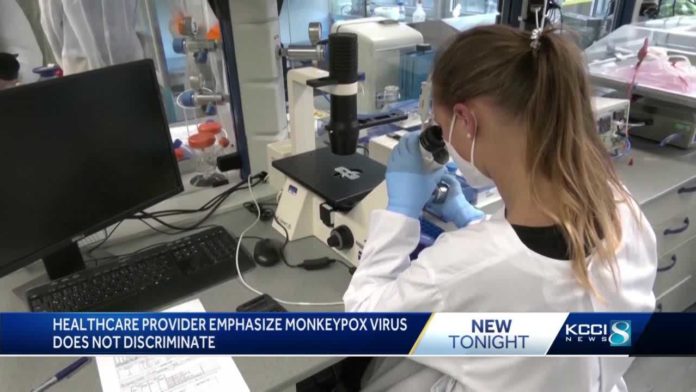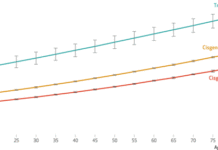
People who have already been exposed to monkeypox are the focus right now when it comes to vaccinations, according to the Iowa Department of Human Services earlier this week. According to the Centers for Disease Control and Prevention, there are 12 confirmed cases of monkeypox in Iowa. There are over 7,500 cases across the U.S. A CDC report notes that the majority of cases in the U.S. outbreak have been among men who have sex with men, including gay and bisexual men. “This disease most likely will spread to other circles if we let it get a foothold in our community,” said Dr. Meghan Schaeffer, an epidemiologist with the SAS Institute who also works as a local consultant across Central Iowa. Dr. Schaeffer says monkeypox does not discriminate, despite the trend currently being seen across the U.S. “We need to not stigmatize those who are getting monkeypox,” Schaeffer said. “We all need to be realistic and aware of the fact that this can spread to other populations.” According to Schaeffer, there are three well-known ways to contract monkeypox: being face to face with someone for a long time, making contact with a highly contaminated surface like a bed where someone infected was laying down on, or sexual contact with someone who has open infectious lesions. “The disease does not really spread before the lesions are present,” Schaeffer said. “So you need to pay attention to those types of encounters.” It can take up to two weeks for symptoms to show like body aches, a fever, and swollen lymph nodes. Schaeffer said monkeypox can cause an immense amount of pain and discomfort and could last for weeks. “As we develop more and more vaccine availability, then our ability to control or even eradicate this is much more likely,” Schaeffer said.
People who have already been exposed to monkeypox are the focus right now when it comes to vaccinations, according to the Iowa Department of Human Services earlier this week.
According to the Centers for Disease Control and Prevention, there are 12 confirmed cases of monkeypox in Iowa. There are over 7,500 cases across the U.S.
Advertisement
A CDC report notes that the majority of cases in the U.S. outbreak have been among men who have sex with men, including gay and bisexual men.
“This disease most likely will spread to other circles if we let it get a foothold in our community,” said Dr. Meghan Schaeffer, an epidemiologist with the SAS Institute who also works as a local consultant across Central Iowa.
Dr. Schaeffer says monkeypox does not discriminate, despite the trend currently being seen across the U.S.
“We need to not stigmatize those who are getting monkeypox,” Schaeffer said. “We all need to be realistic and aware of the fact that this can spread to other populations.”
According to Schaeffer, there are three well-known ways to contract monkeypox: being face to face with someone for a long time, making contact with a highly contaminated surface like a bed where someone infected was laying down on, or sexual contact with someone who has open infectious lesions.
“The disease does not really spread before the lesions are present,” Schaeffer said. “So you need to pay attention to those types of encounters.”
It can take up to two weeks for symptoms to show like body aches, a fever, and swollen lymph nodes.
Schaeffer said monkeypox can cause an immense amount of pain and discomfort and could last for weeks.
“As we develop more and more vaccine availability, then our ability to control or even eradicate this is much more likely,” Schaeffer said.








